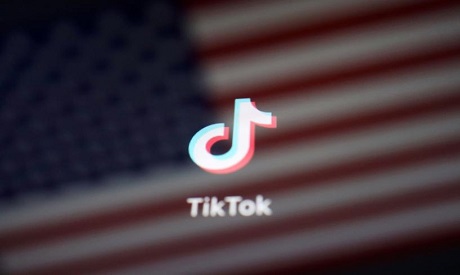
FILE PHOTO: A reflection of the US flag is seen on the sign of the TikTok app in this illustration picture taken September 19, 2020. (Photo: Reuters)
President Donald Trump raised barriers for Chinese companies seeking to invest or raise money in the United States that will have a lasting impact even if he does not win a second term, according to dealmakers and policy experts.
The Committee on Foreign Investment in the United States (CFIUS), an interagency panel that reviews foreign investments for potential national security risks, has tightened its scrutiny of Chinese deals under President Donald Trump.
Here is how CFIUS started to flex its muscle in the last four years:
Deals pending CFIUS review piled up after Trump took office in January 2017, as the government struggled to fill in important mid-level political positions at several of the 16 government departments and agencies that comprise CFIUS.
In September 2017, Trump blocked Chinese-backed private equity firm Canyon Bridge’s planned $1.3 billion acquisition of US-based chipmaker Lattice based on a CFIUS recommendation.
In January 2018, CFIUS blocked Chinese financial technology giant Ant Group's plan to acquire US money transfer company MoneyGram International Inc MGI.O for $1.2 billion.
In April 2018, Chinese conglomerate HNA Group dropped its bid for most of SkyBridge Capital, an investment firm founded by Trump’s former aide Anthony Scaramucci, following pushback from CFIUS.
The Foreign Investment Risk Review Modernization Act (FIIRMA) was signed into law in August 2018, broadening the scope of CFIUS reviews to include non-controlling investments and real estate transactions.
In early 2020, Chinese gaming company Beijing Kunlun Tech Co Ltd 300418.SZ sold Grindr LLC, a popular gay dating app it bought in 2016, for $620 million after being ordered by CFIUS to divest.
In August 2020, Trump ordered China's Beijing ByteDance Technology to divest TikTok, citing national security concerns. Trump said in September that a preliminary deal for Oracle Corp ORCL.N and Walmart Inc WMT.N to take stakes in TikTok had his "blessing". The deal was not finalized after ByteDance said it would not relinquish a majority stake in TikTok.
Short link: